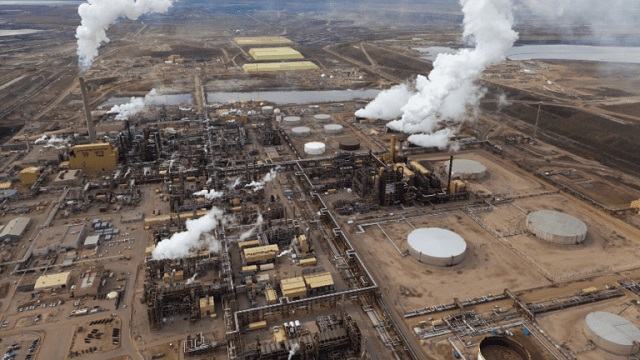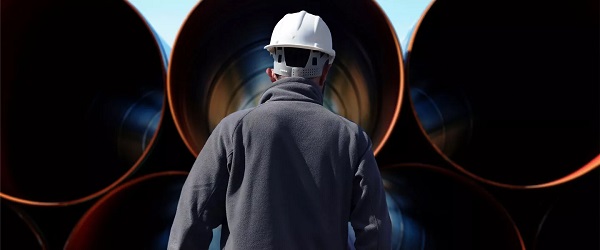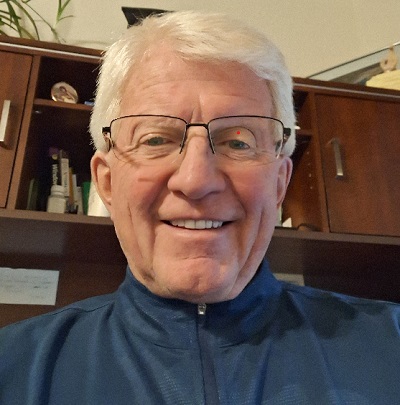Alberta
Canada’s oil sector is built to last, unlike its U.S. counterpart

This article supplied by Troy Media.
 By Rashid Husain Syed
By Rashid Husain Syed
Low-cost oilsands give Canada a crucial edge as U.S. shale oil struggles with rising costs
While global oil markets have rebounded slightly on news of a U.S.-China trade truce, not all producers are equally positioned to benefit. In North America, the contrast is clear: Canada’s oil sector is built for stability, while the U.S. industry is showing signs of strain.
Canada’s oil production is dominated by the oilsands —capital intensive to build, but efficient and low-cost to maintain. Oil sands projects involve mining or steaming oil from sand-rich deposits and can produce for decades, unlike U.S. shale wells that decline rapidly and require constant reinvestment. This gives Canadian producers a structural edge during market downturns.
“The largest companies here in Canada … they have cost structures that are among the best in the world,” said Randy Ollenberger of BMO Capital Markets. “They can withstand WTI (West Texas Intermediate) prices in the range of US$40 and still have enough cash ow to maintain production.”
Mid-sized conventional producers in Canada often break even at US$50 to US$55 per barrel. Major players like Canadian Natural Resources can operate sustainably in the low-to-mid-US$40 range. A break-even price is the minimum oil price needed to cover production costs and avoid operating at a loss.
“We’re not planning on shutting any rigs down or changing our plans, yet,” said Brian Schmidt, CEO of Tamarack Valley Energy. “And it largely is
because our company can tolerate, and is quite profitable, at low prices.” He added: “I think we had already, even before the downturn, put ourselves into a defensive position.”
The data supports that confidence. According to Statistics Canada, 2024 was a record year: crude oil and equivalent output rose 4.3 per cent to 298.8 million cubic metres (about 1.88 billion barrels); exports increased five per cent to 240.4 million cubic metres; and shipments to non-U.S. markets jumped nearly 60 per cent, aided by the completion of the Trans Mountain pipeline expansion.
Nearly 89 per cent of Canada’s oil exports still flow to the United States, but structurally, the two industries are diverging fast.
In the U.S., the shale-driven oil boom is losing steam. Production dropped from a record 13.465 million barrels per day in December 2024 to 13.367 million, according to the U.S. Energy Information Administration.
Industry leaders are warning of a turning point.
“It is likely that U.S. onshore oil production has peaked and will begin to decline this quarter,” said Travis Stice, CEO of Diamondback Energy, the largest independent producer in the Permian Basin. The company is “dropping three rigs and one crew this quarter.”
ConocoPhillips, another major player, is also pulling back. It reduced its capital budget to between US$12.3 billion and US$12.6 billion—down from US$12.9 billion—citing “economic volatility.” Rig counts are falling as well, according to oilfield services company Baker Hughes.
The core challenge is cost. A Federal Reserve Bank of Dallas survey found that Texas producers’ average break-even price is around US$65, the cost to drill replacement wells ranges from US$50 to US$65, and growth drilling requires prices between US$78 and US$85.
Even after the recent rebound—sparked by the May 12 U.S.-China trade truce—West Texas Intermediate sits at around US$63.07, below what many U.S. firms need to expand operations.
Shale’s short life cycles, higher reinvestment demands and rising capital discipline are colliding with lower prices. The U.S. sector is being forced to slow down.
Canada’s oil sector isn’t just surviving—it’s adapting and growing in a volatile market. With lower ongoing costs, long-life assets and increased export flexibility, Canadian producers are proving more resilient than their American peers.
With tens of thousands of jobs across Canada tied to the oilpatch, the sector’s ability to remain profitable through downturns is critical to Canada’s economy, government revenues and energy security.
In a world of unpredictable oil prices, Canada is playing the long game—and winning.
Toronto-based Rashid Husain Syed is a highly regarded analyst specializing in energy and politics, particularly in the Middle East. In addition to his contributions to local and international newspapers, Rashid frequently lends his expertise as a speaker at global conferences. Organizations such as the Department of Energy in Washington and the International Energy Agency in Paris have sought his insights on global energy matters.
Troy Media empowers Canadian community news outlets by providing independent, insightful analysis and commentary. Our mission is to support local media in helping Canadians stay informed and engaged by delivering reliable content that strengthens community connections and deepens understanding across the country.
Alberta
Alberta puts pressure on the federal government’s euthanasia regime

From LifeSiteNews
Premier Danielle Smith is following through on a promise to address growing concerns with Canada’s euthanasia regime.
Alberta Premier Danielle Smith has sent a mandate letter to Justice Minister Mickey Amery directing him to draft and introduce new legislation on euthanasia to ensure better oversight of so-called “medical aid in dying,” or “MAiD” and to prohibit it for those suffering solely from mental illness.
In December of last year, Smith’s United Conservative government indicated that they would seek to address growing concerns with Canada’s euthanasia regime. Mainstream media outlets attacked the move, with the CBC actually reporting that: “Some are concerned new limitations could impact already vulnerable Albertans.”
Premier Smith has now followed through on that promise. The September 25 mandate letter, which lays out directives on a wide range of issues, calls for the justice minister to take steps to protect vulnerable Albertans suffering from mental illness:
As lead, work with relevant ministries to introduce legislation to provide greater oversight and appropriate safeguards for medical assistance in dying and prohibit medical assistance in dying where a person seeks this procedure based solely on a mental illness.
In an email to the CBC, Amery stated that while euthanasia law is under federal jurisdiction, healthcare falls under provincial jurisdiction. The CBC falsely claimed that mental illness “has never been an approved sole eligibility factor for MAID, though the government has considered permitting it.” In fact, the Trudeau government passed Bill C-7, which legalized MAID for those struggling with mental illness, in 2021.
That eligibility expansion has been delayed twice—in 2023 and 2024—and is now slated to come into effect in 2027. Despite those delays, Bill C-7 is still law. MP Tamara Jansen and MP Andrew Lawton are currently championing Bill C-218, the “Right to Recover Act,” which would reverse this and make it illegal to offer or perpetrate euthanasia on someone struggling solely with mental illness.
The CBC’s coverage of this move was predictably repulsive. In addition to their disinformation on euthanasia for mental illness, they reported that “Smith’s letter directing new provincial legislation on MAID comes almost a year after the government surveyed just under 20,000 Albertans on whether they think the province should step in. Nearly half of those surveyed disagreed with putting in more guardrails on MAID decisions.”
“Nearly half” is an unbelievably deceitful way of reporting on those results. In fact, 62% were in favor of legislation for a dedicated agency monitoring euthanasia processes; 55% were in favor of a MAID dispute mechanism allowing families or eligible others to challenge decisions to protect vulnerable people, such as those with disabilities or mental health struggles; and 67% supported restricting euthanasia to those with physical illnesses rather than mental illnesses. The CBC did not report on a single one of those numbers.
Provincial legislation to protect people with mental illnesses is badly needed, although I pray that by the time Justice Minister Amery gets around to drafting it, the Right to Recover Act will be passed in Parliament, and provincial action will be unnecessary. In the meantime, it is increasingly clear that much of Canada’s mainstream press coverage of this issue actively threatens the lives of the suicidal and those struggling with mental illnesses. If their dishonesty and attempts and manufacturing consent were not so routine, they would be breathtaking.
Alberta
Nuclear is the only real way to keep the lights on in Alberta

GE-Hitachi small modular nuclear reactor concept
This article supplied by Troy Media.
 By Doug Firby
By Doug Firby
Nuclear power is the best bet for Alberta but time is running out
Alberta needs nuclear power—and fast. While much of the world, including provinces like Ontario, has spent decades building reactors, Alberta remains stuck in neutral, still debating whether the technology is even worth considering.
Affordability and Utilities Minister Nathan Neudorf recently admitted as much.
“We still have an entire legislative and regulatory framework to establish to allow for this novel—as in new—type of generation to happen within the province of Alberta,” Neudorf told the Canadian Press. And now, the province wants to take a full year to gauge public appetite for nuclear power.
Oh my God. Can we not just get on with it?
Here’s the reality. More than a century ago, the province opted for the cheapest form of electricity—coal-fired generation— because Alberta had lots of it. As environmental and health concerns mounted, the province turned to natural gas to fire its generators.
Natural gas is still a fossil fuel—cleaner than coal, but far from perfect. And while renewables like wind and solar don’t have fuel costs, their output isn’t always reliable. That’s why natural gas is still needed to fill the gaps— especially when demand peaks or the wind isn’t blowing. Because it’s often the last generator brought online when renewables fall short, it sets the market price. That’s what drives electricity costs higher—even if most of the power is coming from renewables.
And speaking of renewables, Alberta has smothered a growing industry with strict limitations on where wind and solar farms can operate. According to the Pembina Institute, since October 2023, 11 gigawatts worth of wind, solar and energy storage projects have been withdrawn from the provincial grid operator’s connection queue—more than the province’s average total power demand.
Meanwhile, electricity consumption is expected to soar. The province is chasing $100 billion in data centre investment—facilities that require massive amounts of electricity to run and cool.
So, add it up: Gas-fueled generation is not seen as a good long-term bet, wind and solar has run into a regulatory brick wall, the province’s hydro potential would be hugely expensive (and environmentally complex) to develop, the population of the province has soared past five million and growing, and with the growth in EVs and the rise of more electrical home heating and cooling, we are headed toward the “electrification of everything.”
Why are we taking a year to find out whether Albertans support nuclear power? And what happens if they say no?
Now let’s also face some facts about nuclear. It’s a highly regulated industry—and rightly so— and even then, it has had its share of safety incidents. Chernobyl. Fukushima. Three Mile Island. Because of that, it can take years to move from proposals to construction. And with regulations constantly evolving, the cost of building nuclear plants often exceeds initial estimates.
Ontario’s experience is a cautionary tale. Over two decades, as Ontario Hydro built 20 reactors, it faced repeated cost overruns, missed deadlines and declining performance. By 1999, Ontario Hydro’s debt stood at $38.1 billion. Its assets? Just $17.2 billion. The government was left with a $20.9 billion stranded debt.
Thankfully, with thoughtful execution, Alberta could avoid many of the teething problems Ontario encountered as it nurtured then-nascent nuclear technology. For one, Premier Danielle Smith is rightly seeking proposals from the private sector and will only consider establishing a Crown corporation if private proposals don’t meet the province’s needs. Private sector investment drove the explosive growth in renewables (until the province brought it to a halt with new restrictions); potentially, the same could be true for nuclear.
Alberta can also benefit from decades of global experience with nuclear power. There’s no need to reinvent the wheel. Among the more promising developments are SMRs—small modular reactors. These typically produce 300 megawatts or less and can be factory-built, then transported to site. Like prefabricated homes, they offer streamlined construction, better scalability and the ability to be integrated into multi-unit facilities as demand grows.
This could be especially valuable if Alberta succeeds in attracting those power-hungry data centres.
Cost isn’t the only consideration. Water use and nuclear waste transport must also be managed carefully. But there are compelling reasons to pursue nuclear—and to lift the restrictions on renewables while we’re at it. Not the least of these is its zero emissions.
Now, we need to get going. In the most optimistic forecasts, the first nuclear reactor is at least a decade away. By then, our demands for electricity will have grown substantially, barring some sort of unforeseen breakthrough in efficiency.
You don’t have to love nuclear power. You just have to recognize the truth: Alberta needs to prepare for it now.
Doug Firby is an award-winning editorial writer with over four decades of experience working for newspapers, magazines and online publications in Ontario and western Canada. Previously, he served as Editorial Page Editor at the Calgary Herald.
Troy Media empowers Canadian community news outlets by providing independent, insightful analysis and commentary. Our mission is to support local media in helping Canadians stay informed and engaged by delivering reliable content that strengthens community connections and deepens understanding across the country.
-

 Business11 hours ago
Business11 hours agoOver $2B California Solar Plant Built To Last, Now Closing Over Inefficiency
-

 Autism2 days ago
Autism2 days agoAutism – what we know
-

 Alberta2 days ago
Alberta2 days agoFederal policies continue to block oil pipelines
-

 espionage1 day ago
espionage1 day agoCanada Under Siege: Sparking a National Dialogue on Security and Corruption
-

 Business10 hours ago
Business10 hours agoWEF has a plan to overhaul the global financial system by monetizing nature
-

 Business12 hours ago
Business12 hours agoThe Leaked Conversation at the heart of the federal Gun Buyback Boondoggle
-

 Business1 day ago
Business1 day agoGoogle Admits Biden White House Pressured Content Removal, Promises to Restore Banned YouTube Accounts
-

 Opinion10 hours ago
Opinion10 hours agoThe City of Red Deer’s financial mess – KPMG report outlines failure of council to control spending






